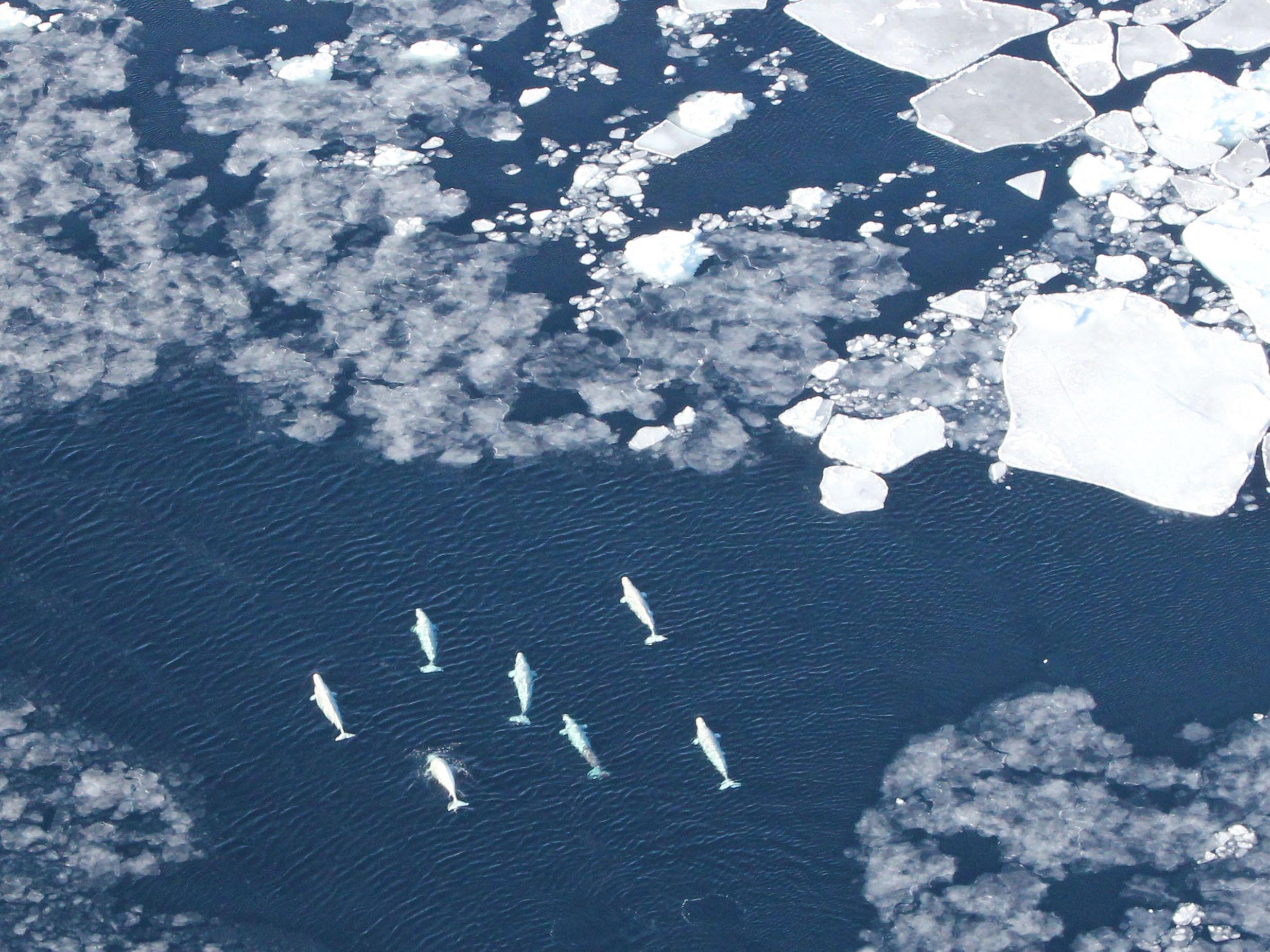Arctic whales threatened by collisions and noise pollution as ships begin crossing melting sea ice
'Even the North Pole may be passable within a matter of decades. It raises questions of how to allow economic development while also protecting Arctic marine species'

As shipping lanes open up in the Arctic due to vanishing sea ice, this untouched haven for marine creatures will be exposed to the new threat of boat traffic.
Whales are particularly vulnerable as noisy ships interfere with their communication and cause fatal collisions.
In a new Nasa-funded study, a team of American researchers have identified for the first time the risks posed to Arctic mammals as ships containing freight and tourists enter their habitat.
“We know from more temperate regions that vessels and whales don’t always mix well, and yet vessels are poised to expand into this sensitive region,” said lead author Professor Donna Hauser, a marine ecologist at the University of Alaska Fairbanks.
“Even the North Pole may be passable within a matter of decades. It raises questions of how to allow economic development while also protecting Arctic marine species.”
The Arctic is experiencing unprecedented changes as warming proceeds at a rate two or three times faster than the global average, melting vast expanses of ice. However, many in the shipping industry see this as a business opportunity.
Current estimates suggest weeks could be knocked off international journeys using these newly opened lanes. Already, ships unescorted by icebreakers have begun to cross the previously impassable northern sea route.
Professor Hauser and her colleagues looked at 80 populations of seven mammal species native to the Arctic, including polar bears, seals and whales.
They found over half the populations identified to be at risk as ships come crashing into their territory, and whales such as narwhals, belugas and bowhead whales are particularly threatened.
“Narwhals have all the traits that make them vulnerable to vessel disturbances – they stick to really specific areas, they’re pretty inflexible in where they spend the summer, they live in only about a quarter of the Arctic, and they’re smack dab in the middle of shipping routes,” said co-author Dr Kristin Laidre, a polar scientist at the University of Washington.
“They also rely on sound, and are notoriously skittish and sensitive to any kind of disturbance.”
Whales and dolphins use sounds to communicate and locate prey underwater, meaning the disturbance caused by ships can seriously hamper their regular activities.
Even worse, ship strikes are a major cause of death and traumatic injury among slower moving species such as bowhead whales.
The scientists urged policy makers to use their research as a framework on which to create new guidelines that will minimise harm to local creatures – such as setting maximum noise levels.
“We could aim to develop some mitigation strategies in the Arctic that help ships avoid key habitats, adjust their timing taking into account the migration of animals, make efforts to minimise sound disturbance, or in general help ships detect and deviate from animals,” said Dr Laidre.

The results were published in the journal Proceedings of the National Academy of Sciences.
Moves have already been made towards protecting the pristine Arctic environment that is being exposed by global warming.
In December, the EU and nine of the world’s major fishing nations announced an agreement to ban fishing in the Arctic Ocean for the next 16 years, allowing time to assess its fragility.
Anticipating the impact even a minor oil spill could have in the region, the International Maritime Organisation is considering a ban on heavy fuel oil in a protected Arctic zone.
However, the exploitation of polar shipping routes has been met with scepticism by environmental groups, with Greenpeace noting the irony of using the newly emerged Arctic seas as a highway for ships to transport fossil fuels more efficiently.
Join our commenting forum
Join thought-provoking conversations, follow other Independent readers and see their replies
Comments
Bookmark popover
Removed from bookmarks